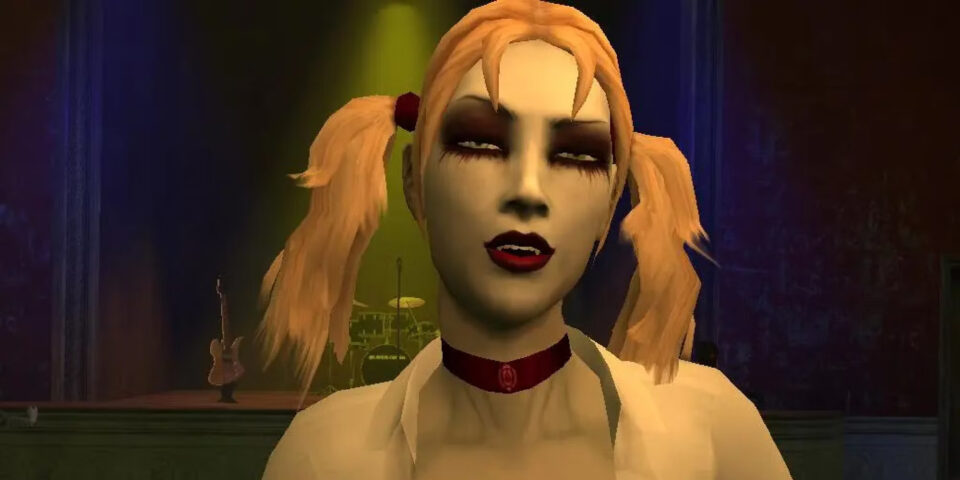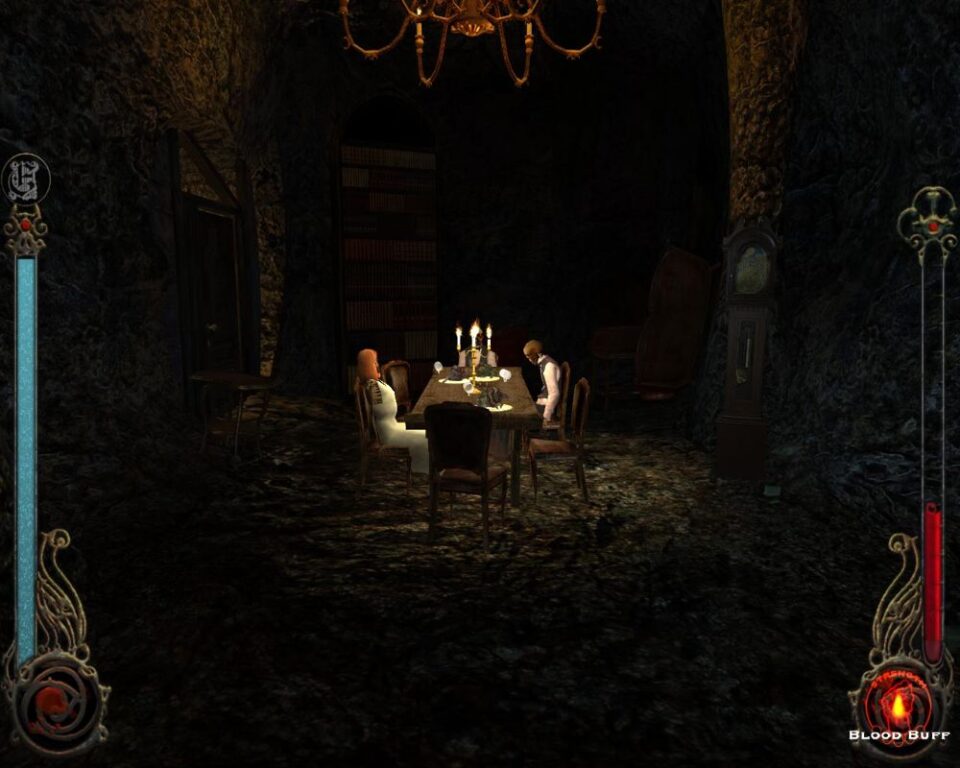‘Vampire: The Masquerade – Bloodlines’: It Only Comes Out at Night…
Twenty years on, ‘Vampire: The Masquerade – Bloodlines’ is still a game worth sinking your fangs into
Vampire: The Masquerade – Bloodlines (VTMB) — rumor has it that when this name surfaces, there is undoubtedly someone, somewhere installing it. It is perhaps one of the most memorable RPGs to have ever been created. Quite like the nature of the protagonist, VTMB still stands the test of time 20 years after its release and will continue to do so.
VTMB was conceived as a sequel to Vampire: The Masquerade – Redemption (2001). Both these games are based on White Wolf’s World of Darkness tabletop role-playing game, called Vampire: The Masquerade. Activision approached (the now defunct) Troika Games to bring VTMB to life and thus began the tragic tale of VTMB.
Development on the game began in 2001, and it was slated for an early 2005 release date. There was a lot that was going against this game from the get-go.
First of all, VTMB was built on Valve’s Source engine which is responsible for so many fond and familiar titles like Half-Life 2 and Counter-Strike. However, during that time, both VTMB and the Valve Source engine were being developed in tandem.
This meant that the developers were at sea in uncharted waters, working with tools and codes that were both unfamiliar and unfinished. The intended design was ambitious and exceeded the scope of the available resources. Since Vampire: The Masquerade was originally a pen and paper game, it was challenging to translate it into the video game medium.
Set in Y2K era L.A. with four hub-based environments, seven unique vampire clans (possessing their own quirks) and multiple playstyles to get the job done, VTMB was determined to push the limits of the gaming world. Do you want to maintain a safe distance from your target or up close and personal? Want to cloak yourself in shadows or go in guns blazing? Good cop, bad cop either way undead cop? The choice is yours.
The combination of having to work with an unfinished engine for an ambitious game meant that development moved at a snail’s pace. Three years in, Activision decided that no matter what state the game was in, it had to come out soon.
Troika, now with a looming deadline creeping up on them like the dawn to a vampire, had no choice but to rush the development and release it. This caused content to be cut down and parts left unfinished to have some semblance of a finished product.
Nov. 16, 2004 saw the release of two iconic games: Valve’s Half-Life 2 and Vampire: The Masquerade – Bloodlines. In other words, the game was dumped in the market at the worst possible time. Aside from competing with hard-hitting titles, it was also released in an unfinished state, full of bugs.
Because of its early release, it will forever remain a haunting mystery as to what the world could have seen if Troika was given just a little more time to finish the game. VTMB was regarded as a flawed masterpiece, receiving praise for its writing and story but the glaring performance issues caused its sales to take a huge hit. Troika even had to shut down soon after, when they were unable to secure funding for future projects, making VTMB their swan song.
Bloodlines was sent out to die, mirroring the fledgling vampire you play as in the game. But just as the fledgling survives despite overwhelming odds, so did VTMB.
So how did this game become seemingly immortal?
VTMB in its base state may not have been the best, but it draws you in like a moth to a flame. Analytical chemist Werner Spahl (Wesp5) who had been playing the first unofficial patch created by Dan Upright, took over the duties of trying to plug the holes in the game. The VTMB community soon banded together, finding and reporting bugs, correcting models, adding Python scripts, fixing code problems, and even creating maps.
Soon the unofficial patch didn’t confine itself to just fix technical issues. There was plenty of unfinished and cut content hidden in the game itself — characters and locations that had been left in a state of limbo in the files of the game were restored, including entire levels. By this point, the unofficial patch had evolved from being a patch to an entirely different experience.

This caused VTMB to have two different patches. The basic patch that fixes the technical issues of the game and the plus patch that restores cut content and changes certain aspects of the gameplay. From just creating patches, the community have even moved on to creating quests, hubs and levels that keep the game going for over two decades. As of writing this, the latest unofficial patch update is July 24, 2024!
For the fledgling kindred, what exactly is VTMB?
You play as a newly-turned vampire in L.A. Your sire has been killed and you are now moved like a pawn on a chessboard for any and all vampires who reside in the city. Vampires are political creatures and the tug of war between the Camarilla and the Anarchs is reaching a breaking point. The rogue Sabbat vampires are going berserk in the city. Vampire Hunters are closing in on your kind. Essentially, the state of affairs is balanced like a very unstable Jenga tower. Everyone has their own agendas and yours is to survive your new ‘unlife’.
But one rule that all vampires abide by regardless of their association, is upholding the Masquerade. Humans don’t know vampires exist and the plan is to keep it that way. Break the Masquerade and it’s not only you who has been compromised but all the Kindred (vampires). This ties into the game mechanics as well; you have five Masquerade points, break them all and there will be consequences.
There’s also a fair amount of enemy variety. The fledgling will go up against fellow vampires, monsters, flesh abominations, gangsters, vampire hunters…the list goes on. Of course, with certain enemies, there are workarounds, provided you can talk your way out of it.
The seven different clans are all poles apart, contributing to the variety of ways that one can replay the game. Some of your options are to play up your charm as a Toreador, use your authority as a Ventrue, or wield blood magic as a Tremere.
Two clans really stand out though — Nosferatu and Malkavian.
The Nosferatu are so disfigured that a mere sighting of them can lead to a Masquerade violation. Playing as them forces you to hide in the darkness, use the underground sewers to navigate L.A. It’s akin to playing an entirely different game.
Malkavians on the other hand are best described in their own words ‘bat-shit crazy’. They can and will talk to a T.V., argue with a stop sign, have plenty of Roman mythological references in the vocabulary and will constantly hear voices whispering in their head.
Their dialogue variety is especially good because navigating a Malkavian’s thought process is so difficult. Even the other Kindred you meet has a hard time piecing together what they say. It’s always better to play them after beating the game once, as Malkavians occasionally predict the events of the game.
If deciding between the clans is difficult, there’s even an adorable little quiz at the beginning of the game that sorts you into the best fit. While there is a lot of customization on your character sheet and history, there’s very little you can do to change your appearance or clothing.
The graphics may look a little outdated — the game is 20 years old after all — but the atmosphere is unbeatable. From the Santa Monica pier with the thin-blooded vampires huddled around a fire, to Downtown L.A. with its maze-like streets, Hollywood at night with the bright neon lights piercing through the darkness — every area is unique and built like a gothic dream.
The Ocean House Hotel is a great example of creating dread and anxiety in a player with just the atmosphere. There aren’t any chase scenes, the spirits stalk you throughout your exploration of the manor and don’t get right in your face. You may be a vampire but in a place with no blood supply, rapidly decreasing health due to poltergeist activity you realize that being undead doesn’t mean you are invincible.
This level is burned into every VTMB player’s memory and is singlehandedly responsible for players quitting because of how terrifying the experience is.

For a game about vampires, there is no campy Dracula. VTMB excels in its writing most of all. All the residents of the L.A. night scene are fleshed out (including the Stop sign). They don’t just function as quest kiosks; each of the quest givers are treated like protagonists of their own games. Even the minor characters are so memorable because they have really good dialogue. Not to say that today’s games don’t have good writing, but it’s hard to think of a game that could match up to VTMB.
VTMB (ironically) still feels more alive than a lot of open world present-day RPGs. Its world is so large and lived-in as you progress through the story. There aren’t many RPGs that are also immersive simulators out there that could hold a candle to VTMB. It’s been rightfully put on a pedestal with a dedicated fanbase. It is still the definitive vampire game. Its past has proven it is a survivor and it will survive for many, many, many dark nights in the years to come.





